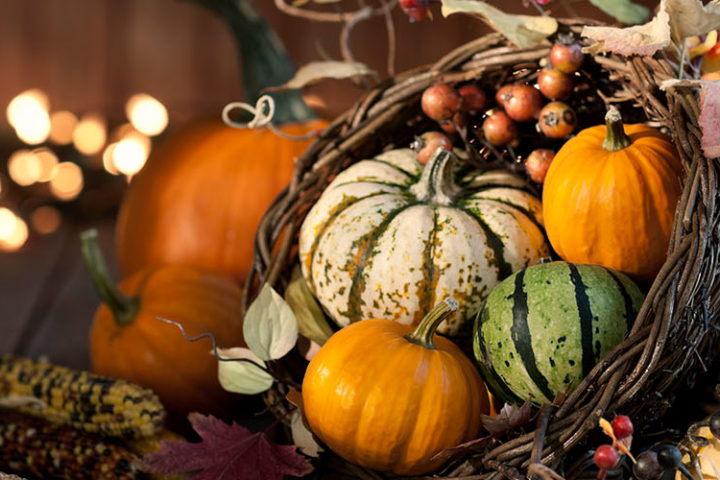10/16/2024
Ser gente de abundancia - Noviembre 2024 Avance del Leccionario, Marcos 12, Año B
por Rev. Greg Allen-Pickett

Para las iglesias que hacen una campaña tradicional de mayordomía, el mes de noviembre puede caer al principio, a la mitad o al final de esa campaña. Cualquiera que sea la fecha en que le toque a su iglesia, este es un mes ideal para centrarse en el tema de la abundancia. Los pasajes del final del Año B del ciclo del leccionario se prestan bien a este tema y pueden ser un buen colofón tanto para el año litúrgico como para el tiempo de la corresponsabilidad.
Sunday, November 3
On November 3, the gospel lectionary passage is Mark 12:38-44, the story of the widow and her two copper coins. Jesus says, “Truly I tell you, this poor widow has put in more than all those who are contributing to the treasury. For all of them have contributed out of their abundance; but she out of her poverty has put in everything she had, all she had to live on.” The others in the crowd who are putting money in the treasury are comfortable. The gospel records that “Many rich people put in large sums,” Jesus chooses to focus on those who give sacrificially.
El equivalente moderno podría ser Elon Musk. Ha donado 150 millones de euros a obras benéficas, lo que parece una suma enorme. Sin embargo, es una de las cinco personas más ricas del mundo, con un patrimonio neto de más de 180.000 millones de euros. Así que lo que dona a la caridad palidece en comparación con su riqueza total, que representa menos de 0,1% de su patrimonio neto.
Those living in Jesus’s time could not have fathomed such sums of money, but the message in this passage from Mark 12 is clear. The poor widow gave sacrificially. Underlying this difference in giving is a mentality of scarcity, possessed by the wealthy crowd, versus a mentality of abundance, possessed by the poor widow. The widow believes that she will still have enough even if she gives sacrificially. We are called to do the same, to be people of abundance!
 ..
..
Sunday, November 10
On November 10, we turn to the epistle lectionary passage, Hebrews 10:11-25. Much of the book of Hebrews was written to exhort Christians to persevere in the face of persecution. This passage reminds us that in Jesus, we have an abundance of grace and forgiveness, sufficient to get us through challenges in life.
“For by a single offering he has perfected for all time those who are sanctified. And the Holy Spirit also testifies to us, for after saying, ‘This is the covenant that I will make with them after those days, says the Lord: I will put my laws in their hearts, and I will write them on their minds … I will remember their sins and their lawless deeds no more.’ Where there is forgiveness of these, there is no longer any offering for sin.”
This one single offering is sufficient for all time. God has made that offering for us, put God’s law on our hearts, and written it on our minds. Through that, we have an abundance of forgiveness and grace. That abundance leads us to “have the confidence to enter the sanctuary … approach with a true heart in full assurance of faith.” Y de esa abundancia de gracia estamos llamados a responder con gratitud, generosidad y servicio. El autor de Hebreos escribe que esta abundancia debería, “… Let us consider how to provoke one another to love and good deeds, not neglecting to meet together, as is the habit of some, but encouraging one another …” ¡Qué gloriosa respuesta de abundante generosidad y amor al don de la abundante gracia que se nos ha concedido!
Sunday, November 17
On November 17, we celebrate “Reign of Christ Sunday,” the final Sunday of the liturgical year. The associate pastor at our church likes to refer to this Sunday as “New Year’s Eve” just before we restart the liturgical year in Advent. He always wishes the congregation “Happy New Year” at the end of worship on Reign of Christ Sunday, and indeed, it is a joyful celebration of the abundance of God’s sovereignty.
The Psalm assigned to this Sunday provides some beautiful reflection on that abundance. The first part of Psalm 132 focuses on King David and the Davidic lineage occupying the throne. The second part declares that God has chosen to abide with, love, and protect Zion. Rather than thinking of Zion as a particular geographical location, it is helpful for the modern reader to interpret this as “God with us” no matter where we are. By reading this Psalm through that lens, we are offered some incredible promises of God’s steadfast presence and abundant provision. The Psalmist writes, “I will abundantly bless its provisions; I will satisfy its poor with bread. Its priests I will clothe with salvation, and its faithful will shout for joy.”
We have a promise in this Psalm that God will provide abundantly for God’s people, and in turn, we will shout for joy! I can think of no better way to celebrate this “New Year’s Eve” before we jump into the season of Advent than in these promises of abundance to us and our call to respond as people of abundance. Happy New Year!

